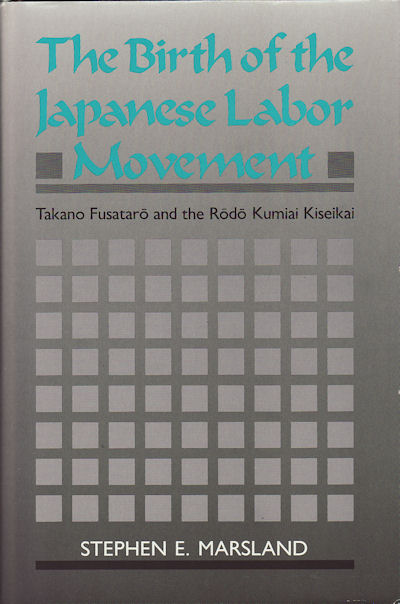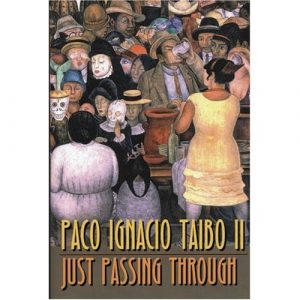The Birth of the Japanese Labor Movement
$12.00
In stock
Description
Takano Fusatarō and the Rōdō Kumiai Kiseikai
By Stephen E. Marsland
University of Hawaii Press
Few subjects have been so cursorily treated as the first Japanese unions. Yet their history contains much to intrigue the student of human events: the American Federation of Labor organizer who founded the Japanese labor movement; the Japanese activists who spent years in America studying unionism; a major railway strike that won the hearts of the people of Japan; a major Japanese union newspaper with most of its copy in Japanese but always a few pages in English. These and other puzzling events can be understood only in the context of the development of Japan’s labor movement between 1868 and 1900.
Stephen E. Marsland effectively brings together primary and secondary sources to demonstrate how social, political, economic, technological, and historical factors shaped the philosophical outlook and the organizational structure of the labor movement in Japan. He shows that Japanese workers and their leaders tended to choose the “shop” form of unionism rather than the prevalent forms in the industrialized Western nations. The shop form, the author contends, was the structural forerunner of the present-day “enterprise” unions that multiplied so typically in post-World War II Japan. The marriage of Western economic concepts with Japanese social structure and philosophy forged a uniquely Japanese unionism that has remained strong and vibrant to this day, sustained by the traditions created by the early Japanese labor movement and its leaders.
The Birth of the Japanese Labor Movement will be of interest to Japanese studies specialists, particularly in history and the social sciences, and scholars in the fields of industrial relations and labor history.
Additional information
| Weight | 20 oz |
|---|---|
| Dimensions | 9.5 × 6.25 × 1 in |
| Format | Hardcover |
You must be logged in to post a review.





Reviews
There are no reviews yet.